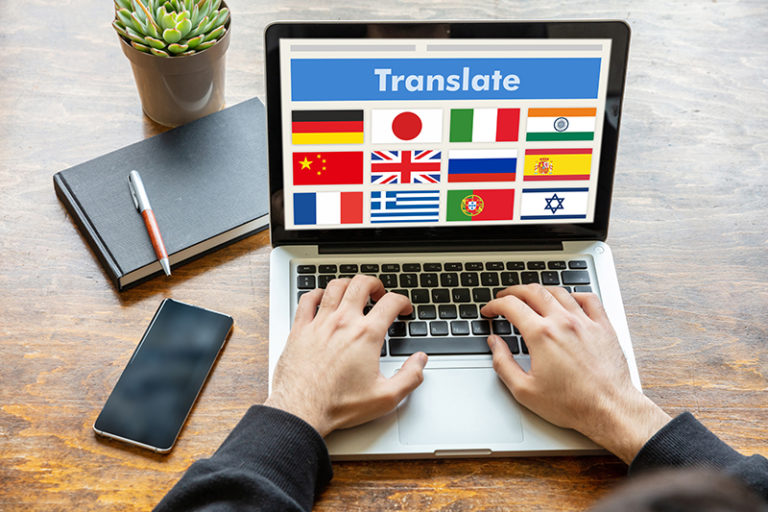How AI and SEO Are Transforming Localization Strategies for Global Content Optimization
In today’s interconnected world, businesses are constantly seeking innovative ways to reach global audiences. The convergence of Artificial Intelligence (AI) and Search Engine Optimization (SEO) is revolutionizing content localization strategies, enabling companies to optimize their content for diverse international markets effectively. This article explores how AI is transforming SEO practices in localization, paving the way for enhanced global reach and content innovation.

Understanding Localization
Localization involves adapting content, products, or services for specific target markets, considering linguistic, cultural, and functional aspects. It goes beyond translation, encompassing adjustments to ensure resonance with local audiences. Effective localization considers cultural nuances, regional preferences, and local regulations to create seamless user experiences across markets. McDonald’s exemplifies successful localization by tailoring offerings to local tastes globally, such as providing vegetarian options in India and aligning marketing with local festivals, demonstrating the importance of cultural sensitivity in global strategies.
How AI is Revolutionizing Localization for Global Markets
Artificial Intelligence has emerged as a transformative force in the field of localization, revolutionizing how businesses approach global content strategies. AI-powered content localization tools are enhancing accuracy, efficiency, and scalability in multilingual SEO optimization for international markets but are also opening up new possibilities for personalized and culturally nuanced content delivery. Here’s an in-depth look at how AI is making a significant impact across various aspects of localization:
AI Tools for Multilingual SEO and Machine Translation
AI-powered translation tools use advanced algorithms to overcome language barriers by translating text with high accuracy, considering context and cultural nuances. This technology enables quick and precise translation of large content volumes, enhancing global communication. For instance, companies like Netflix employ AI translations to localize subtitles and dubs, making their content accessible to diverse audiences worldwide and facilitating market expansion.
Content Analysis and Adaptation
AI’s data analysis capabilities are revolutionizing how businesses understand and adapt to global audiences. Through advanced machine learning, AI identifies cultural content usage patterns, predicts popular topics worldwide, and helps companies create culturally resonant content while avoiding missteps. Spotify exemplifies this approach, using AI to analyze cross-cultural listening habits, creating personalized playlists, and curating region-specific content like country-specific “Top 50” lists. This strategy has propelled Spotify’s global popularity by delivering locally relevant content worldwide.
Automated Quality Assurance
AI has significantly enhanced quality control in localization by ensuring accuracy, consistency, and cultural appropriateness in translations. AI tools streamline processes, checking grammar, consistency, and cultural nuances to save time and resources traditionally spent on manual reviews.
For example, Microsoft leverages AI-powered quality assurance tools to maintain consistency across multiple languages for its products and services. This approach allows for rapid identification and correction of issues, improving the user experience.
Personalization and Dynamic Content Adaptation
AI is transforming how businesses deliver personalized content in localization by adapting to individual user preferences, behaviors, and cultural contexts. For example, Amazon’s learning recommendation system analyzes user data and regional trends to suggest relevant products, enhancing user engagement.
SEO Optimization for Local Markets
AI is revolutionizing SEO for international markets by enhancing website visibility and discoverability across different countries. It employs advanced tools to identify crucial multilingual keywords, analyze regional search patterns, and ensure compliance with local search engine guidelines. For instance, Airbnb leverages AI to optimize its SEO globally, translating and adapting website content for various languages and cultures. This approach improves Airbnb’s search rankings in different countries and helps create natural-sounding descriptions that resonate with local travelers’ search intents.

SEO Best Practices for Global Audiences
Optimizing content for international audiences requires a strategic SEO approach that considers:
- Linguistic nuances
- Cultural sensitivities
- Local search preferences
Global companies like Amazon exemplify these practices by tailoring their online presence to each market’s unique characteristics, ensuring optimal visibility and relevance across diverse international audiences.
Multilingual Keyword Research
Leveraging AI tools for multilingual keyword research significantly enhances visibility and relevance in target languages and regions. This process involves analyzing search volumes, local synonyms, variations, and cultural context behind search intents. AI-powered tools excel at identifying the most pertinent keywords and predicting emerging trends, enabling businesses to adapt their strategies proactively. For example, an e-commerce platform targeting Spanish-speaking markets might utilize AI analysis to uncover that certain product terms are preferred in Spain versus Latin America. By adjusting their keyword strategy based on these insights, companies can optimize content to resonate with local users, potentially increasing engagement and conversion rates.
Hreflang Tags Implementation
Hreflang tags are crucial HTML elements that inform search engines about the language and regional targeting of web pages. These tags ensure that users see the appropriate version of a website based on their language and location, improving user experience and potentially boosting engagement and sales. Many global companies, like IKEA, implement hreflang tags across their country-specific websites to provide localized experiences, potentially increasing customer satisfaction and sales in different markets.
Localized Content Creation
To effectively reach a global audience, developing content tailored to local interests, trends, and cultural contexts is crucial. AI can assist by analyzing local content performance and suggesting topics that resonate with specific audiences. For instance, a company entering the Japanese market might use AI to analyze popular local topics and trends, then create content that incorporates local events such as the Cherry Blossom Festival or Japanese New Year. This approach makes the content more relatable and engaging for the target audience.
Technical SEO for International Sites
Technical SEO for international sites involves optimizing websites for global accessibility, ensuring fast loading times, and proper localization across different countries and languages. Companies like Amazon exemplify this by using country-specific domains, implementing content delivery networks for improved speed, and utilizing hreflang tags to direct users to appropriate language versions. These strategies enhance user experience and improve search engine visibility in diverse markets, crucial for businesses aiming to establish a strong global online presence.
Continuous Monitoring and Optimization
Continuous monitoring and optimization in international SEO involves regularly assessing and improving website performance across different countries and languages. This process is crucial for maintaining competitiveness in diverse markets and adapting to changes in search engine algorithms and user behavior. It includes tracking metrics like site traffic, popular pages, and user engagement, and making necessary adjustments to content, site speed, and keywords based on performance data and local trends. This approach ensures that global brands maintain an effective online presence across various international markets.
Closing the Gap: AI, SEO, and Localization
The integration of AI and SEO in localization marks a significant leap forward in global content strategies, enhancing the efficiency, precision, and cultural relevance of localized content while ensuring it ranks well across diverse markets. By leveraging these technologies, businesses can scale their localization efforts more effectively, improve content accuracy, boost visibility in global search results, and deliver personalized experiences to international audiences. As AI continues to evolve, we can expect even more sophisticated tools that will further streamline localization processes and strengthen global SEO strategies. The future of localization lies in the seamless blend of human expertise with AI-driven insights, opening new opportunities for businesses to expand their global reach and drive growth in international markets.






